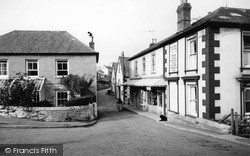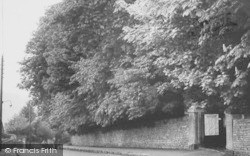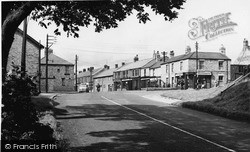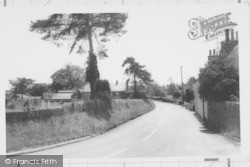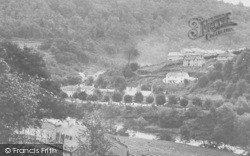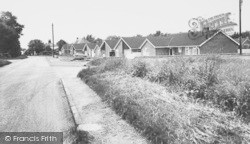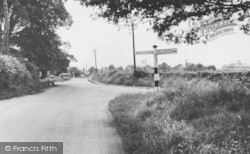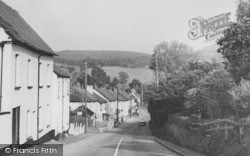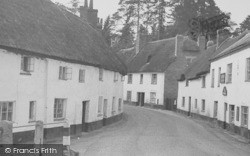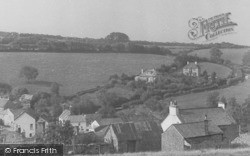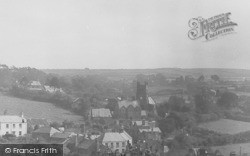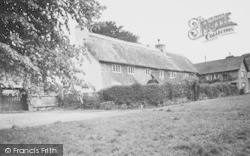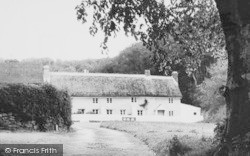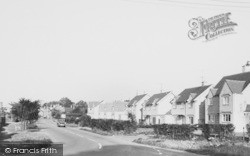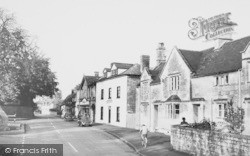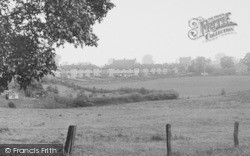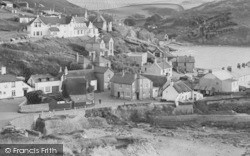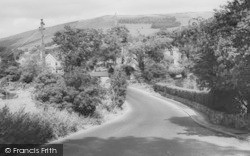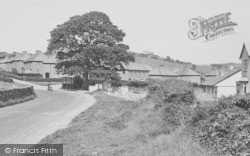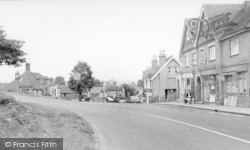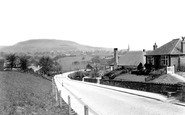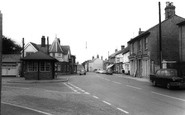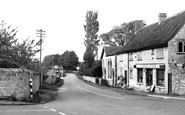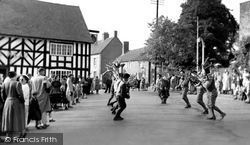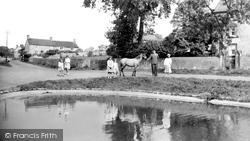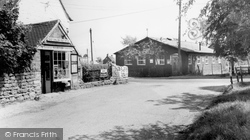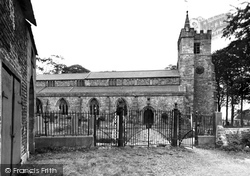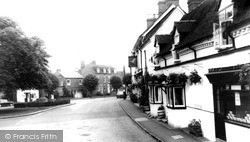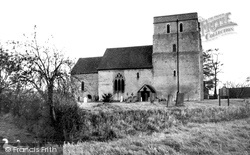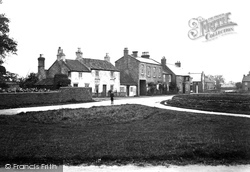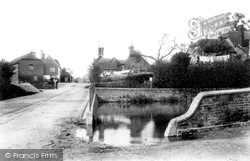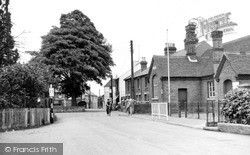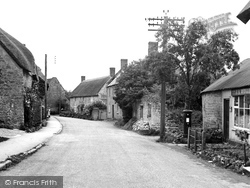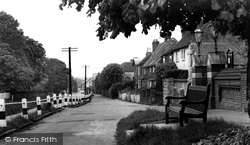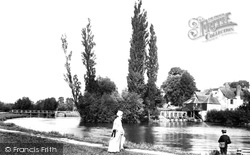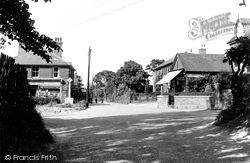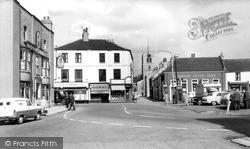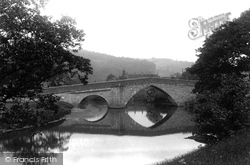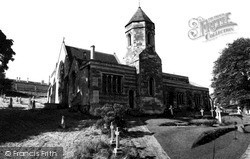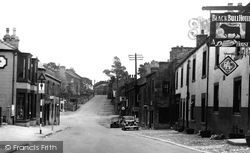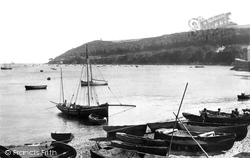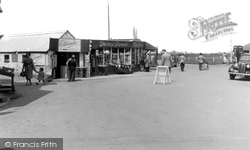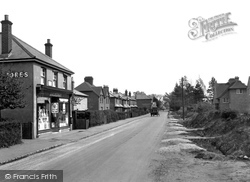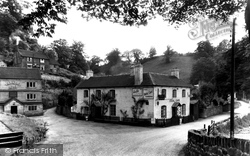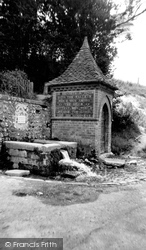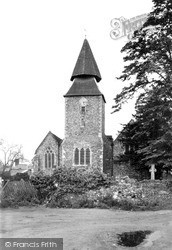Places
5 places found.
Those places high-lighted have photos. All locations may have maps, books and memories.
Photos
9,649 photos found. Showing results 1,181 to 1,200.
Maps
18 maps found.
Books
13 books found. Showing results 1,417 to 13.
Memories
4,612 memories found. Showing results 591 to 600.
Brookhouse
I used to live at Brookhouse with my parents, great aunt and maternal grand mother. Brookhouse was split into 3 houses at the time (131, 133, 135 Holcolme Road). My grandfather (Thomas Lomax) visited at Christmases and holidays. My ...Read more
A memory of Tottington in 1955 by
Youthful Pranks In Binstead! 1958 1962
I am a 67 year old British citizen and have lived for over 40 years as a rock musician in Germany. I went to Ryde School in the 60s. After I left I was lonely living in London and used come back to the island ...Read more
A memory of Binstead by
Village Life
My first visit to the village of Llanferres was in the mid 1970s visiting relatives. Walking to 'Fairy Glen' and surrounding fields, hills, woods and farmland, I was in heaven and still am after 30+ years living in the beautiful ...Read more
A memory of Llanferres in 1950 by
Growing Up In Somersham
I was born in Somersham in 1940, in my grandmother's house, which was 1 West End. My own house was known then as 6 Trinity Terrace, since changed to 90 High Street. Until the mid 1950s a lot of the houses were quite ...Read more
A memory of Somersham in 1940 by
Gellideg Isaf Farm
I was born in 1958, onto the farm namely Gellideg Isaf of which now sadly only the farm house exists. The farm in 1958 did have some twenty one acres, and as I got to the age of eight I started to help my parents with the hay ...Read more
A memory of Maesycwmmer in 1958 by
Evacuation Ww2
I recall being evacuated to Llansaint from London as a child of 7. I lived in a small sweet shop in the the village with a family named Phillips, or Philips. I am now 74 so my memories are not too sharp with regards to names and ...Read more
A memory of Llansaint in 1941 by
Maelog Lake Hotel
A schoolfriend of my former wife (now sadly deceased) married a Rhosneigr man and lived in the village. In order to visit them my wife, I and our year old daughter visited Rhosneigr first in 1971, again in 1973 and for the last ...Read more
A memory of Rhosneigr in 1971 by
Fond Memories
I first visited Borth as a toddler in the early 60's, with my Uncle Dai from Machynlleth. I used to visit him and his wife to stay with them for holidays. As he had worked the railways he used to take me from Mach to Borth on the ...Read more
A memory of Borth by
Evacuation To Woolavington
My family (name of Marsh) evacuated to Woolavington to escape the continual bombing of London. We lived in 2, Church Street and my aunt and her family lived in No 1. At the vicarage, which I believe was just over ...Read more
A memory of Woolavington in 1940 by
Whit Tuesday Walk And Yetton Rant
All of us who attended Kirkheaton Church and Sunday School looked forward to the Whit Tuesday Walk around the village behind the Grange Moor Band. We would all contribute cakes or sandwiches for tea, to be eaten ...Read more
A memory of Kirkheaton in 1958 by
Captions
5,016 captions found. Showing results 1,417 to 1,440.
The village gets its name from a Barton (or Berton), the old word for a rickyard.The village church of St James was remarkable for its time in that it was built all at once, and not over a couple
A family pose with their fine-looking pony by the village pond, or mere, at Hartington.
Bristol cigarettes and Brooke Bond tea could be purchased at the Post Office Stores, run by M S Beevers at the time of this photograph.
The 12th-century church of St Helen was the parish church for Garstang, two miles away. Until they acquired their own church, Garstang villagers had to walk to Churchtown.
The character of the village has changed greatly in recent years as commuters have discovered it.
Three miles from Wye, the Norman village church has remained largely unaltered since it was built, with the exception of its windows.
The character of the village has changed greatly in recent years as commuters have discovered it.
The village lies next to Bolton on Swale five miles east of Richmond; it has the largest walled green in the whole of the country.
Once a major ironworking centre, this village also boasts the first Fuggle hops to be grown.
Although actually very old, this is another Medway-side village that was left with a distinctly Victorian appearance by the 19th century building boom, when it was a source of brick earth and also chalk
Loders Post Office, run by J A Wells, can be seen in a view eastwards from the middle of the village. Waynflete and Lothers (left) face No 41 and the Loders Arms (right of centre).
St Barnabas's Church stands behind the two gate pillars (right), and a memorial in a nearby wall lists the village's fallen from the First and Second World Wars.
The village of Iffley has been swallowed up by Oxford, though its true heart remains intact. Iffley Mill, first mentioned in 1106, was destroyed by fire in 1908.
At the time of this photograph, Eythorne was primarily a dormitory for the local coal mines. These have long since been closed, and the village is a rural backwater again.
At nearby Fishlake, the village church is noted for its late Norman doorway. At Thorne the church of St Nicholas has a late 13th-century tower and early 20th-century glass.
The elegant double-span bridge over the River Derwent at Froggatt dates from the 17th century; it is unusual in that it has a large, pointed central arch nearer to the village and a smaller one on the
The church of St Leonard is perched on a steep slope just below the walls of the castle, overlooking the village.
There are two Benthams, High and Lower, and this view looks down Mount Pleasant from the village cross in High Bentham.
From the village of Cawsand, at the entrance to Plymouth Sound, the seas stretch out to Penlee Point, where the famous hooter alerted fog-bound sailors to the perils of this treacherous coast.
Again we see the village centre, with another of the special seaside shops that sold everything needed for a seaside holiday.
The village grew with the industries that sprang up and prospered alongside the river and the navigation. These included Unwins print works, a tannery, the gravel pits, and three laundries.
When W H N Nithersdale wrote his book on the Highlands of Staffordshire, he was impressed by the number of public houses in the village, all of which did a roaring trade during the summer months and
The Spring c1965. A spring flows beside the village street in Fulking, and on the side of the wellhouse is this text: 'He sendeth springs into the valley which run among the hills.
The most distinctive feature of the church is its curious 'candle-snuffer' two-tier steeple, but the village also remembers that in 1560, its vicar was Edmund Drake, father of Francis Drake.
Places (5)
Photos (9649)
Memories (4612)
Books (13)
Maps (18)


